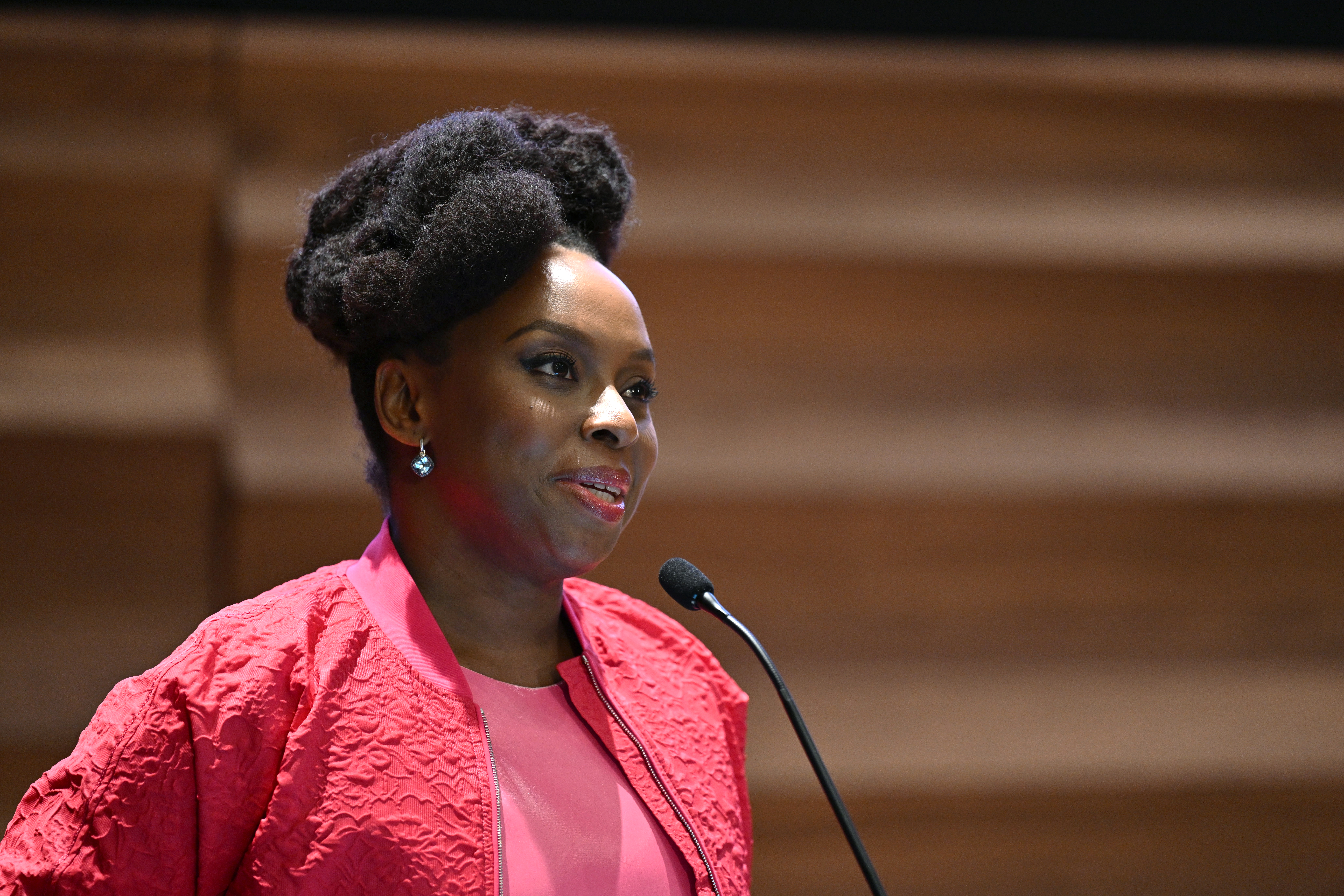Chimamanda Ngozi Adichie: Four ways to advance women in leadership positions
The author of We Should All Be Feminists offers advice on achieving equality during inaugural Women’s International Leadership Summit

For Chimamanda Ngozi Adichie, author, activist, and MacArthur Fellow, there’s a straightforward reason to work toward a future where women are more represented in leadership positions, in business, government, and the civil sector.
“Including women in leadership is essential to this question of equality. The case for including women is not that women are better than men, or that women will necessarily make better leaders,” she said, “It is simply that women are human and make up half the world’s population and have historically been unfairly excluded.”
Adichie’s remarks came at the inaugural Women’s International Leadership Summit hosted by SAIS Women Lead. She offered advice—which she called pontificating points—for emerging leaders working to include women in leadership positions.
Here are four of Adichie’s “pontificating points:”
- Use culture as a tool of change.
Adichie, a novelist whose work has been sampled by Beyonce, spoke about the way art can persuade people to change their minds. She described a reader who supported Nigeria’s laws banning homosexuality who enjoyed a book she wrote featuring a gay character.
“He said, by the time I realized the character was gay, I already liked him,” she said. “It’s one of the most hopeful things that anyone has ever told me. It reaffirmed my faith in the power of stories.”
2. Think about how data is collected.
Data is critical to understanding the problem of gender inequality and to identifying solutions, but Adichie urged audience members to consider “the nuances of data collection.” The author pointed to a survey conducted that asked women if they experienced “intimate partner violence.”
“I don’t know what that means. The language we use matters,” Adichie said.
3. “Do not think of the word ‘quota’ as a bad word.”
Adichie argued quotas requiring women to fill leadership positions can be a powerful tool, but that supporters should acknowledge the nuances around their use.
“There’s nothing worse than feeling that you’re token in a workplace or that you’re not qualified, that you were hired just because you’re a woman,” she said.
4. Mentor girls and women.
She urged those in attendance to provide support and guidance to girls and young women, and to give them a realistic overview of the challenges they’ll face.
“When we tell girls to reach for the sky … we also should tell them that sometimes the wall cuts you down … and also tell them that reaching for the sky can mean different things for different people,” she said.
Adichie was one of several speakers at the Women’s International Leadership Summit on Friday, Oct. 20; others included Geeta Rao Gupta, the U.S. Ambassador at Large for Global Women’s Issues; Wendy Teleki, the head of the We-Fi Secretariat at the World Bank, Gargee Ghosh, the president of global policy and advocacy at the Bill and Melinda Gates Foundation; and Kathleen Pike, president and CEO of workplace mental health nonprofit One Mind At Work.